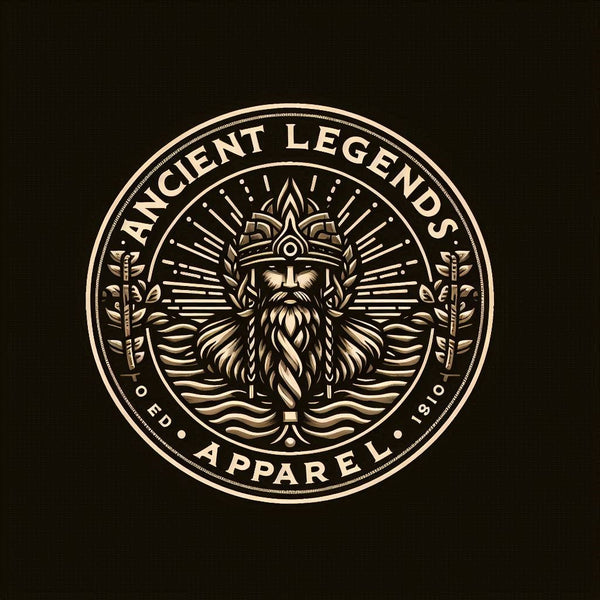Why Greek Mythology Still Captivates Us Today
Karl FShare
INTRODUCTION
The lilting stories of mysteriously powerful gods, valiant heroes, and gruesome monsters continue to resonate in modern minds just as they did thousands of years ago. Greek mythology, in particular, stands at the nexus of history and fiction, time and eternity, and tangible and spiritual. This ancient narrative's characters and their vibrant stories, ensnared in tales of trickery, bravery, and passion, remain a perennial point of fascination for scholars and laymen alike. This deeply embedded love for Greek mythology encompasses far more than just an indulgence for vintage tales. It's an escapade into humanity's collective unconscious where age-old archetypes, symbols, and myths disclose profound truths.
ORIGIN AND CULTURAL CONTEXT
The civilization of ancient Greece, blossoming around 8th century BC, wasn't merely the cradle of democracy, philosophy, and science. It was also the birthplace of a rich tapestry of myths, intricately woven with gods, goddesses, heroes, and exotic creatures. The Greeks, a people deeply immersed in the imaginative realms of the ether, sought explanations of life, nature, and the cosmos in their mythology. Their gods, anthropomorphic in design, were mirrors reflecting the Greeks' perception of the contemporaneous world around them and the potent emotions within them.
So spellbinding were these sagas that they served not just as bedtime stories for children, but as an integral part of Greek culture, religion, art, and literature. Homer's "Iliad" and "Odyssey," romantically echoing the Trojan War's tales and Odysseus' perilous journey home, are classic testimonies of the myth's profound influence on Greek society and beyond.
THE LEGEND OR STORY
The Greek mythos is brimming with enthralling tales. Would one tell the story of Zeus, the sky and thunder god, and the king of gods, known for his tumultuous love affairs and vengeful storms? Might one recount the hero Heracles' twelve laborious tasks, or the beautiful Pandora opening her ill-fated box? Each tale cascades into the next, forming a ceaseless current of knowledge and insight.
However, one tale distinctly encapsulates the very essence of Greek myth — the captivating saga of Perseus and Medusa. Born as a result of Zeus' illicit love affair, Perseus embarks upon a near-impossible task — to behead the monstrous Gorgon, Medusa, whose gaze could turn any mortal into stone. With divine intervention and a display of true courage, Perseus victoriously returns, symbolizing invincibility and triumph over overwhelming odds.
INTERPRETATIONS AND SYMBOLISM
Carl Jung, the renowned psychoanalyst, perceived mythological stories as reflections of universal archetypes embedded deep within our sociological consciousness. For instance, Medusa might represent our deep-seated fears, her deadly gaze a metaphor for the paralysis fear induces. Conversely, Perseus could exemplify the universal hero archetype — the beacon of hope and courage shining through adversity.
Furthermore, Greek myth is replete with elemental and animal symbolism. Pegasus, the divine winged steed, symbolizes knowledge, glory, and inspiration. Fire, stolen by Prometheus from the gods for humanity's use, signifies wisdom and knowledge.
COMPARISONS IN OTHER CULTURES
Greek mythology significantly impacted other cultures, primarily through Roman adoption. Roman mythology is largely a reinterpretation of Greek myth, albeit with the gods and stories tweaked to align with local ideologies. For instance, Zeus, the supreme Greek god, finds a parallel in Jupiter, while Poseidon, the sea god, becomes Neptune in Roman lore.
Moreover, snapping glimpses from other cultures, we see Norse mythology's Thor mirrors Zeus in controlling thunder. In India’s vast mythos, Heracles’ laborious missions find a parallel in Arjuna's challenges in "Mahabharata."
MODERN REFERENCES AND POP CULTURE
Greek mythology continues to weave its magic in contemporary society, permeating our literature, art, and pop culture. Its heroes grace our comic books, their tales morphing into epic movies like "Clash of the Titans," and "Percy Jackson & The Olympians." Also, fantasy novels like “Harry Potter” and “Game of Thrones” borrow liberally from Greek myths.
Even our language owes much to these fables. Many common phrases like "Achilles heel," symbolizing vulnerability, or "Pandora's box," denoting the unleashing of nameless evils, are derived from Greek mythology.
LEGACY AND LASTING MYSTERIES
Did the legendary city of Troy, Homer's famed battleground for gods and mortals, genuinely exist? What inspirations birthed the terrifyingly enchanting tale of Medusa? Is there a factual underpinning to Minos’ labyrinth and the monstrous Minotaur imprisoned within? These questions still echo through the corridors of time, whispering invitations to unravel these timeless enigmas.
The Greek myths' legacy is unquestionable, surviving millennia in the form of gripping narratives, resplendent art, and historical enigmas. Greek mythology remains a gilded mirror into our past, reflecting collective dreams and fears, moral lessons, and the enduring human spirit that continues to strive, explore, and seek understanding amid a complex universe.
